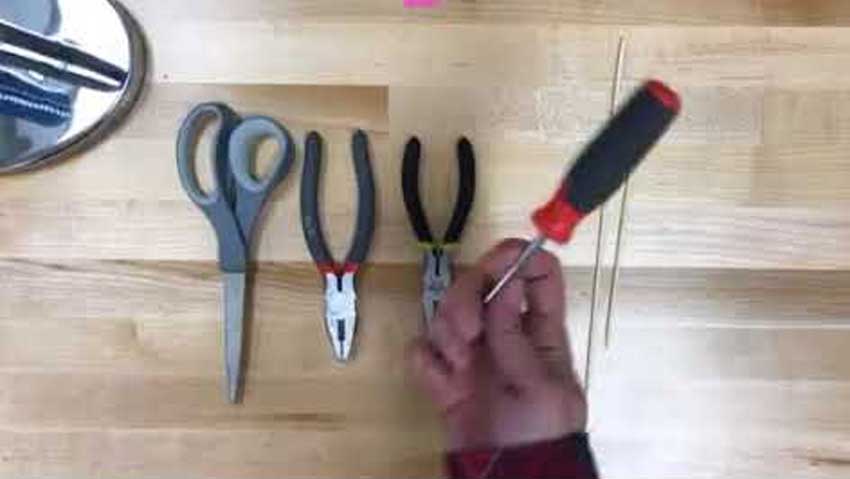In Montessori education, children are given tools and activities to mirror real-life tasks. Introducing sharp objects such as scissors or child-safe knives is not about taking risks but fostering trust and responsibility. Montessori believed that children thrive when treated as capable individuals. Allowing them to use real tools, under proper supervision, gives them confidence and a sense of accomplishment.
Sharp objects in Montessori EPL activities encourage children to:
- Develop focus and attention to detail.
- Improve hand-eye coordination and fine motor skills.
- Understand the importance of safety and responsibility.
- Gain real-world skills that prepare them for adulthood.
Choosing Child-Safe Tools for Montessori Activities
Using the right tools is crucial in ensuring safety and effectiveness. Montessori materials are thoughtfully designed to meet children’s developmental needs. Here are some essential tools for sharp-object activities:
- Child-safe knives: These are specially designed with duller blades and ergonomic handles, perfect for cutting fruits, vegetables, or soft foods.
- Safety scissors: Ideal for cutting paper or fabric in art or practical life exercises.
- Peelers: For peeling bananas, cucumbers, or carrots, teaching precision and care.
Montessori Activities with Sharp Objects
1. Cutting Soft Foods
One of the most common practical life skills in Montessori is food preparation. Provide children with a cutting board, a child-safe knife, and soft fruits like bananas or strawberries.
Benefits:
- Enhances hand strength and agility.
- Builds confidence in handling kitchen tools.
- Instils a sense of contribution to meal preparation.
2. Snipping and Cutting Paper
Scissors are great for developing fine motor skills. Provide pre-drawn lines or shapes on paper for children to follow as they cut.
Benefits:
- Improves hand-eye coordination.
- Encourages creativity and precision.
- Helps children understand boundaries and patterns.
3. Vegetable Peeling
Set up a station with a peeler and simple vegetables such as carrots or cucumbers. This task encourages responsibility and concentration.
Benefits:
- Promotes patience and focus.
- Teaches practical kitchen skills.
- Strengthens the pincer grasp, a key fine motor skill.
4. Flower Arranging
Montessori flower arranging often includes using scissors to trim stems. This activity combines creativity with practical skill development.
Benefits:
- Encourages aesthetic appreciation.
- Refines motor skills.
- Teaches respect for living things.
Safety Tips for Using Sharp Objects in Montessori Education
Safety is paramount when introducing sharp objects to children. Here’s how to ensure a secure learning environment:
- Start with a demonstration: Show children how to use each tool correctly and emphasize safety guidelines.
- Use age-appropriate tools: Ensure the tools match the child’s developmental stage. Child-safe knives and scissors are designed with younger children in mind.
- Create a prepared environment: Use a stable workspace with non-slip surfaces to minimize accidents.
- Supervise closely: Always monitor children during sharp-object activities to guide and intervene when necessary.
- Teach clear boundaries: Explain that knives and scissors are used only for specific tasks and should not be played with.
- Encourage slow, deliberate movements: Reinforce the importance of moving carefully and mindfully when handling sharp objects.
Benefits of Sharp Object Activities in Montessori Education
Engaging in EPL activities with sharp objects offers numerous developmental benefits, including:
- Enhanced motor skills: Cutting, peeling, and snipping strengthen hand muscles and improve coordination.
- Increased concentration: These tasks require focus and attention, which help children develop their ability to concentrate.
- Boosted self-esteem: Completing tasks instils a sense of pride and accomplishment.
- Practical knowledge: Learning to handle tools prepares children for real-life scenarios.
- Independence: Children feel empowered when entrusted with responsibilities, fostering a sense of autonomy.
Incorporating Montessori Principles at Home
Parents can extend the benefits of Montessori sharp-object activities into the home environment. Here’s how:
- Create a child-friendly kitchen station: Set up a low counter with child-safe knives, a cutting board, and simple ingredients for children to prepare snacks.
- Offer art activities with scissors: Provide scrap paper or magazines for children to practice cutting and creating.
- Encourage participation in daily tasks: Allow children to peel vegetables or trim herbs during meal preparation.
Incorporating sharp-object activities into Montessori EPL activities is a practical and empowering way to teach children responsibility, concentration, and life skills. Children can safely explore these tasks with the right tools, a prepared environment, and close supervision while building confidence and independence.
By embracing these principles, Montessori educators and parents can help children develop essential skills that will serve them throughout their lives.




